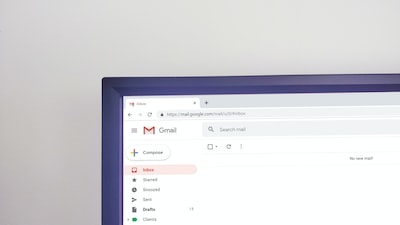In the bustling world of literary agents, time is money, and efficiency is the key to success. The endless tasks of reading manuscripts, negotiating with publishers, and managing clients can be daunting, but what if there were a tool that could lighten the burden and streamline the workflow? Enter AI-powered email organizer, the latest buzzword in the literary world.
This innovative technology is revolutionizing the industry, allowing agents to stay on top of incoming submissions, prioritize important messages, and boost productivity. With more and more agents embracing AI in their workflow, could this be the beginning of a new era in publishing? Let’s delve deeper into this fascinating topic and explore the benefits and limitations of AI-powered email organizer for literary agents.
The controversy surrounding AI-powered email organizers has been brewing for some time now. Literary agents, in particular, have been up in arms about these tools, citing concerns about privacy, security, and the potential for these machines to replace human workers.
But despite the pushback from some corners of the industry, there are plenty of reasons to embrace these new technologies. For starters, they can help writers manage their busy inboxes more effectively – freeing up valuable time for more creative pursuits.
Additionally, AI-powered email organizers can help agents and editors identify promising new talent more quickly, by automatically sorting through the thousands of queries that flood their inboxes every day. Of course, there are certainly legitimate concerns to be addressed when it comes to data privacy and the role of AI in the workplace.
But ultimately, the benefits of these innovative tools far outweigh the potential risks. So if you’re a writer, an agent, or anyone else in the publishing industry, it’s time to embrace the future – and all the exciting possibilities that it holds.
Table of Contents
Introduction: AI-Powered Email Organizers
Literary agents are adapting to the digital age with the help of AI-powered email organizers. However, these technology advancements are raising concerns about hindering communication between agents and authors.
Is it time to let go of outdated practices and embrace the future? Although automation and prioritization technology can be intimidating, its far-reaching benefits leave literary agents and publishers with more time for creativity and efficiency. As AI technology changes the game, only time will tell its impact on the relationship between agents and authors.
Concerns of Literary Agents
Literary agents, once gatekeepers to publishing, now face a threat from artificial intelligence. AI-powered email organizers help agents save time, but some worry about job displacement.
However, AI can empower agents by providing personalized insights for better client relationships. We must strike a balance, making AI a tool instead of a replacement.
Literary agents have always adapted to industry changes – AI should be no different.
Efficiency and Time-Saving Benefits
The literary industry often resists technology, but AI-powered email organizers could revolutionize it. While some literary agents worry about being replaced by machines, AI-powered email organizers can save time and improve efficiency by automating tasks like sorting and flagging correspondence.
This leaves more time for creative and strategic work. AI technology is advancing quickly, and it will become a staple in the literary landscape.
Why resist progress? Embrace the future and enjoy the benefits of increased productivity and a lighter workload.
Increased Accuracy in Email Management
The literary industry faces a controversial issue of whether to adopt AI in the agent workflow. AI-powered email organizers promise greater accuracy and efficiency, but raise concerns over potentially eroding personal relationships between agents and clients.
Supporters of AI believe it frees agents from menial tasks and allows them to focus on building relationships. However, critics worry that it could disrupt the delicate balance between agents and clients.
As the debate continues, the industry must decide how to navigate this technological frontier.
Eliminating Challenges of Manual Sorting
The impact of AI on the relationship between literary agents and clients is a hotly debated topic in the industry. Some agents welcome AI-powered email organizers, while others criticize them as impersonal and unnecessary.
The main appeal of digital tools lies in relieving agents of the tedious and time-consuming task of manually sorting through hundreds of emails from potential clients. AI frees up their time to focus on more important matters such as nurturing relationships with current clients and discovering new talent.
However, some critics argue that relying on AI to sift through emails diminishes the personal touch that successful agents possess. The literary agent-client dynamic is evolving, and it is uncertain whether AI will ultimately be a friend or foe in this changing landscape.
Embracing AI-Powered Email Organizers Fosters Growth
The literary industry is at a crossroads. Literary agents are concerned about AI-powered email organizers.
Some worry these tools will replace the personal touch and nuanced approach of traditional agents. However, others argue that these tools could revolutionize the industry and fuel growth.
It’s important to balance tradition and innovation. Embracing these new technologies could be key to staying ahead of the curve.
AI-powered tools can help identify trends and opportunities in the ever-changing publishing landscape. Whether you’re a traditionalist or a tech-savvy agent, AI-powered email organizers will shape the future of the literary industry.
Streamline Your Inbox and Optimize Your Workday with Cleanbox – The AI-Powered Email Organizer for Literary Agents
Are you a literary agent finding it hard to keep up with the constant influx of emails? Look no further than Cleanbox – the AI-powered email organizer that can streamline and safeguard your inbox. With its advanced technology, Cleanbox categorizes and sorts incoming emails, allowing your priority messages to stand out and minimizing the risk of falling for phishing or other malicious content.
But the benefits of Cleanbox don’t end there; its streamlined approach means you can spend less time wading through your inbox and more time focusing on your clients. Whether you’re dealing with manuscript submissions or editing notes from authors, Cleanbox can help keep you organized and make your workday that much easier.
So why wait? Try Cleanbox today and see the difference it can make in your literary agent experience.
The Bottom Line
With the world becoming increasingly digital, it’s no surprise that the literary industry is following suit. But with the flood of emails that literary agents receive each day, staying on top of it all can be a daunting task.
That’s where AI-powered email organizers come in. These tools can help agents sort through their inbox, flagging important emails and even sending canned responses.
But as with any technology, there are questions about privacy and bias that must be considered. Still, for literary agents looking to streamline their workflow, an AI-powered email organizer may be just the solution they’ve been searching for.
Only time will tell if these programs will become a standard in the industry, but for now, they offer a tantalizing glimpse into what the future of agenting may look like.





 in Wyoming
in Wyoming